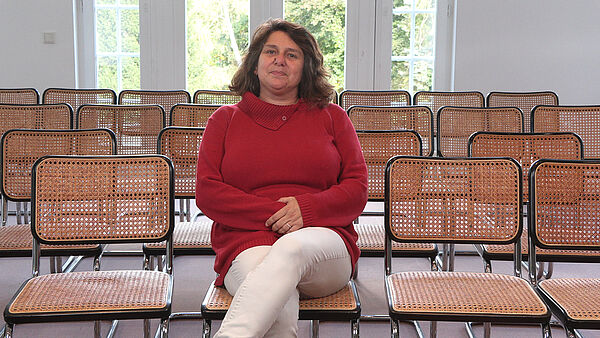
Sara Magalhães, Ph.D.
Professor of Evolutionary Biology
Universidade de Lisboa
Born in 1973 in Lisbon
Ph.D. in Biology from the University of Amsterdam
Project
The Role of the History of Exposure in Adaptation to Multiple Stressors
Evolutionary biologists have developed a sophisticated theoretical framework explaining how organisms adapt to their environment. However, this framework generally considers simple environments, with one selective agent (stressor), and empirical examples of real-time evolution mostly do not consider important selection pressures posed by antagonists, namely competitors or predators. In contrast, ecologists have been addressing the impact of multiple stressors on populations, but this research topic has not percolated much into evolutionary biology. In particular, we still lack a general framework to understand how temporal differences in exposure to stressors (i.e., the history of exposure) affects the evolution of organisms. We also fail to understand how the similarities and differences among the ecological and evolutionary responses to the conflict posed by different antagonists affect evolutionary trajectories. This is particularly important given the general acknowledgement that evolution can operate within short timeframes. I propose to shed light on this issue by systematically reviewing the literature on the genetic, ecological, and evolutionary consequences of multiple stressors, with an emphasis on evolutionary conflict with various antagonists, with the aim of identifying cases from which knowledge of the impact of the history of exposure can be extracted. I propose to develop a general framework, defining common features, identifying knowledge gaps, and suggesting methods to move this field forward. The tasks that I propose are situated at the intersection among research fields and would benefit from input from other research areas dealing with asynchronies in the history of conflict. Therefore, my project will certainly benefit from an exchange of ideas with researchers at the Wissenschaftskolleg who have other backgrounds.Recommended Reading
Fragata, Inês, Raul Costa-Pereira, Mariya Kozak, Agnieszka Majer, Oscar Godoy, and Sara Magalhães (2022). “Specific Sequence of Arrival Promotes Coexistence via Spatial Niche Pre-emption by the Weak Competitor.” Ecology Letters 25: 1629–1639. https://doi.org/10.1111/ele.14021.
Godinho, Diogo P., Leonor R. Rodrigues, Sophie Lefèvre, Laurane Delteil, André F. Mira, Inês R. Fragata, Sara Magalhães, and Alison B. Duncan (2023). “Limited Host Availability Disrupts the Genetic Correlation between Virulence and Transmission.” Evolution Letters 7: 58–66. https://doi.org/10.1093/evlett/qrac008.
Ravigné, Virginie, Leonor R. Rodrigues, Maud Charlery de la Masselière, Benoît Facon, Lechosław Kuczyński, Jacek Radwan, Anna Skoracka, and Sara Magalhães (2024). “Understanding the Joint Evolution of Dispersal and Host Specialisation Using Phytophagous Arthropods as a Model Group.” Biological Reviews 99: 2019–237. https://doi.org/10.1111/brv.13018.
Colloquium, 14.01.2025
The Ecology and Evolution of Conflict
All biological interactions that we observe in nature are interactions of conflict, be it between predators and prey, hosts and parasites, males and females, or among competitors or kin-related individuals. Yet, different interactions are often addressed by distinct scientific communities whose language and even focus often do not match. As a consequence, the study of biological interactions has addressed the idiosyncrasies of each of them, instead of their commonalities. With this project, I propose to fill this gap by identifying common axes along which all conflict interactions can be characterized. By doing so, I also aim to detect knowledge gaps in the study of each of these interactions. Moreover, this approach allows investigating the joint impact of multiple interactions on ecological and evolutionary processes. Finally, I hope that being at the Wissenschaftskolleg will allow me to benefit from knowledge drawn from other research areas, in which conflicts are routinely studied.
Publications from the Fellow Library
Magalhães, Sara (Oxford, 2023)
Magalhães, Sara (Kettering, 2023)
Limited host availability disrupts the genetic correlation between virulence and transmission
